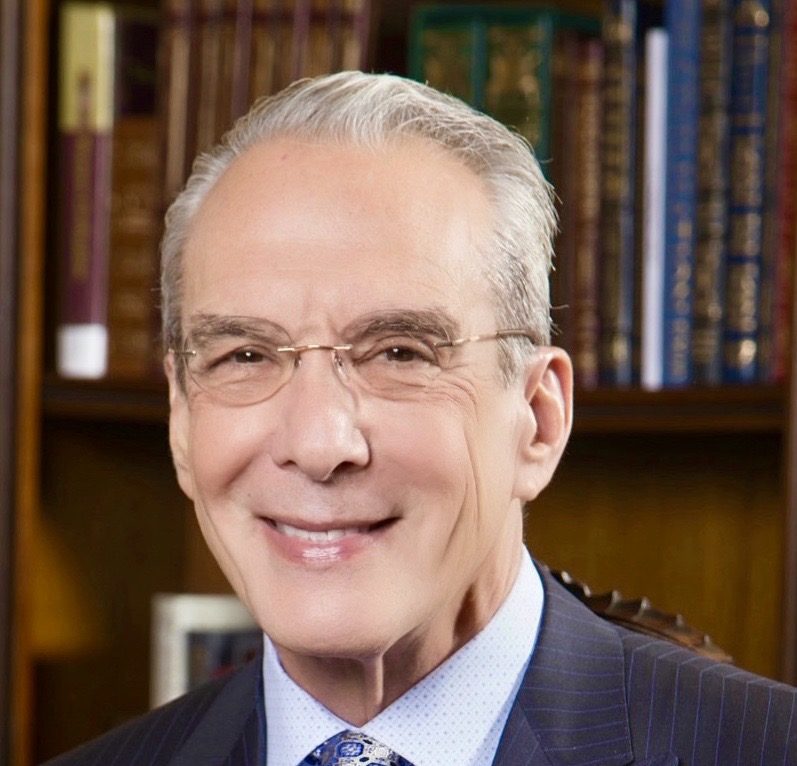touchEXPERT OPINIONS Recognizing and treating Alzheimer’s disease: The importance of a multidisciplinary approach for early diagnosis and continuum of care
Watch two experts in Alzheimer’s disease describe the impact of early diagnosis on therapy and care, from the physician’s and patient’s points of view.
Prof. Jeffrey Cummings discusses the impact of obtaining an early diagnosis of Alzheimer’s disease on treatment options and patient care.
1/2 Next InterviewIn this interview Professor Jeffrey Cummings answers the following questions:
- How much does an early diagnosis affect the clinical outlook for patients with Alzheimer’s disease?
- What are the goals of pharmacologic intervention for Alzheimer’s disease?
- How is Alzheimer’s disease diagnosed and which assessments are important?
- What are the barriers preventing early Alzheimer’s disease diagnosis and care provision, and how might they be overcome?
Professor Jeffrey Cummings is the Director of the Chambers-Grundy Center for Transformative Neuroscience, a centre devoted to using the tools of neuroscience and neurologic drug development to transform people’s lives. He was a founding director of the Cleveland Clinic Lou Ruvo Center for Brain Health in Las Vegas and served as director of the Mary S. Easton Center for Alzheimer’s Disease Research and the Deane F. Johnson Center for Neurotherapeutics, at UCLA. read more
He is a world-renowned Alzheimer’s researcher and leader of clinical trials, with expertise in neuropsychiatric assessment, clinical trials, developing new therapies for brain diseases and the interface of neuroscience and society.
Professor Jeffrey Cummings discloses: Consultation fees from AB Science, Acadia, Alkahest, AlphaCognition, ALZPath, Annovis, AriBio, Artery, Avanir, Biogen, Biosplice, Cassava, Cerevel, Clinilabs, Cortexyme, Diadem, EIP Pharma, Eisai, GatehouseBio, GemVax, Genentech, Green Valley, Grifols, Janssen, Karuna, Lexeo, Lilly, LSP, Lundbeck, Merck, NervGen, Novo Nordisk, Oligomerix, Otsuka, PharmacotrophiX, PRODEO, Prothena, ReMYND, Renew, Resverlogix, Roche, Signant Health, Suven, Unlearn AI, Vaxxinity, VigilNeuro pharmaceutical, assessment and investment companies. Grant/research support from the Alzheimer’s Disease Drug Discovery Foundation (ADDF); NIA grant P20AG068053; NIA grant R01AG053798; NIA grant R35AG71476; NIGMS grant P20GM109025; and NINDS grant U01NS093334. Stock options with Acumen, ADAMAS, Alkahest, Alzheon, AnnovisBio, Behren Therapeutics, BIOasis, MedAvante and United Neuroscience. Copyright ownership of the Neuropsychiatric Inventory.
Dr Jennifer Bute describes the importance of an MDT and the correct approach to care for people living with dementia.
2/2 Leave FeedbackIn this interview Dr Jennifer Bute answers the following questions:
- How is AD related to other forms of dementia?
- Who are the key members of an MDT for patients with AD, especially during the early stages of diagnosis and treatment?
- How might an early AD diagnosis affect a patient’s treatment plan?
- What are the important principles of care for people with dementia and how can these improve disease management?
- What non-pharmacological aspects of AD care should primary care physicians consider?
Dr Jennifer Bute worked in Africa as a doctor before working as a GP for 25 years, where she was involved in medical education for doctors and medical students. She was diagnosed with dementia 12 years ago and has lived in a dementia-inclusive retirement village for 11 years. She speaks at conferences and on radio and has been involved in television programmes raising awareness and understanding of dementia. read more
She passionately believes more can be done to improve both the present and the future for those living with dementia. Her book “Dementia from the Inside: A Doctors Personal Journey of Hope” is her story and explains these principles. She also has a website (www.gloriousopportunity.org) with educational videos and a weekly blog on advice on dementia as she continues to learn.
Dr Jennifer Bute has nothing to disclose.
Overview & Learning Objectives
Overview
Two experts highlight the importance of obtaining an early diagnosis for patients with Alzheimer’s disease and explain the crucial role of the multidisciplinary team. They also consider the most effective approach to treatment and care for patients with dementia.
Learning Objectives
After watching this activity, participants should be better able to:
- Discuss current treatment recommendations and identify challenges in the management of Alzheimer’s disease
- Describe the importance of a multidisciplinary team approach in the management of Alzheimer’s disease

Register to touchNEUROLOGY for FREE
- Peer-reviewed journals and expert opinions
- Interactive CME and e-learning modules
- Video conference highlights



